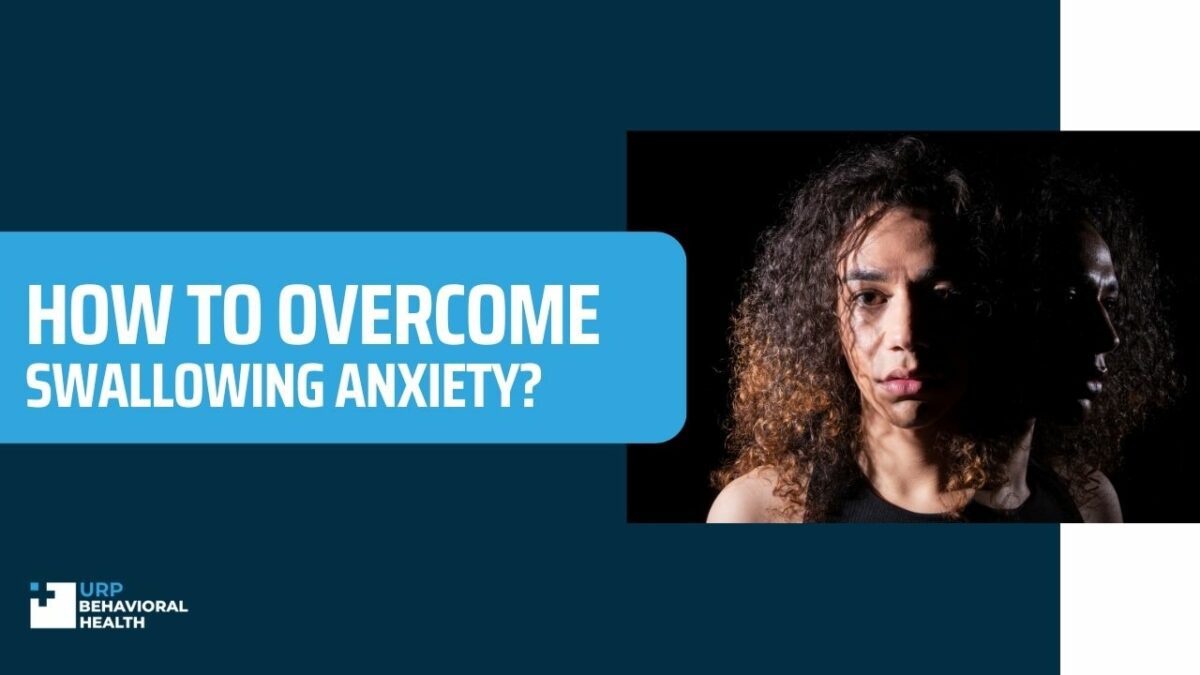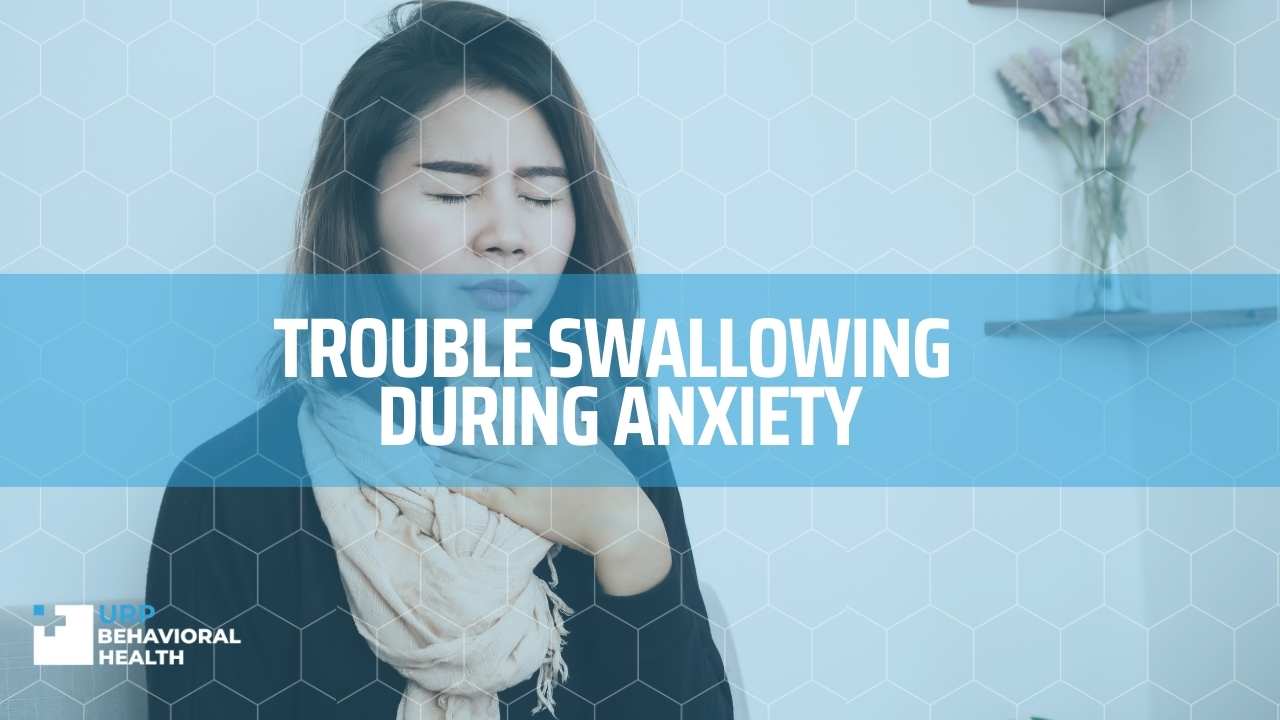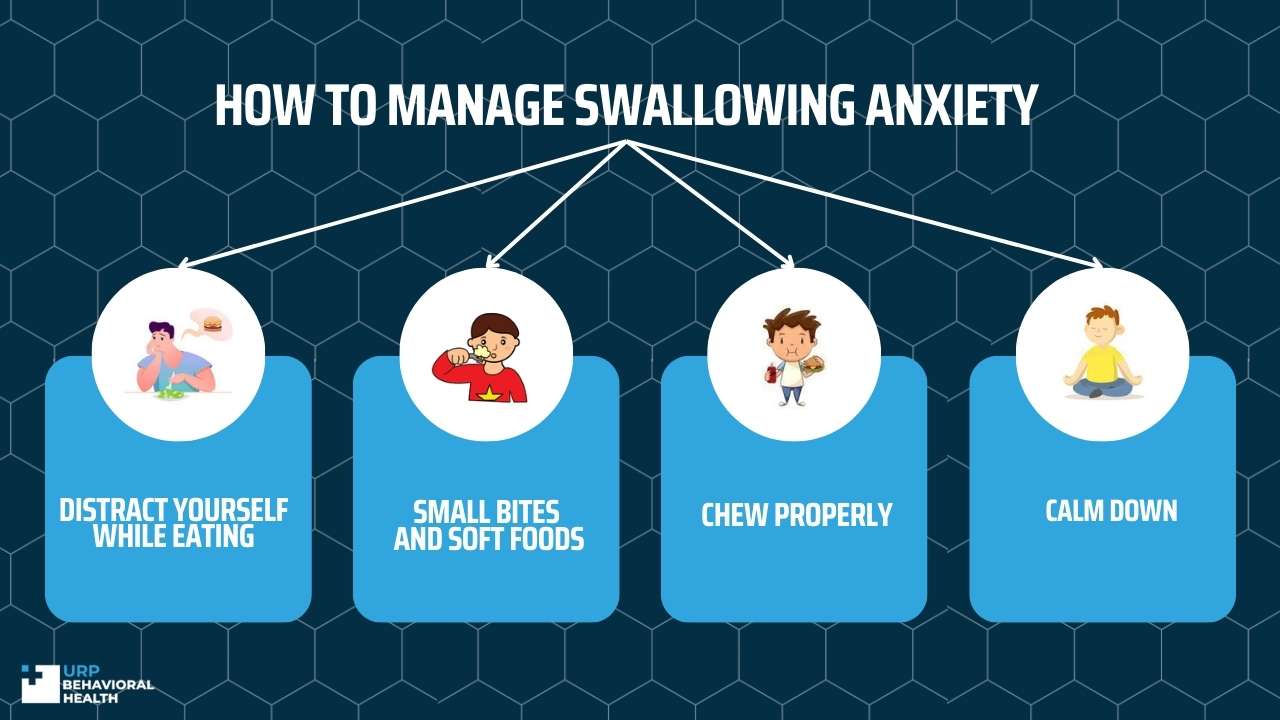
How To Overcome Swallowing Anxiety?
People struggling with anxiety, no matter what type, can agree that it really sucks the joy out of life. From meeting new people to dealing with the stress of a job, anxiety makes all of this difficult. But for some, it can go as far as being unable to swallow when they’re anxious. Known as phagophobia, it’s a rare condition that can make it very difficult for people to carry out simple things like eating, drinking, or taking medication.
If you or a loved one struggles with swallowing anxiety, here’s what you should know about what the condition is, its symptoms, why it happens, and what you can do about it.
What is Swallowing Anxiety?
When you suffer from swallowing anxiety, you’re afraid of swallowing. Studies show that people with the condition can go as long as a week [1] without swallowing, during which they’re entirely dependent on semisolid foods and liquids. People with swallowing anxiety show a fear and avoidance of swallowing certain foods, fluids, or pills. Some of the effects of phagophobia include weight loss, which is a natural consequence of avoiding foods, as well as malnutrition.
Despite being rare, the condition is just as disabling as more common disorders, and in some instances, it may require immediate attention to avoid lasting harm.

Trouble Swallowing During Anxiety
Swallowing anxiety is a condition on its own and shouldn’t be confused with having trouble swallowing when you have anxiety. When you experience high levels of any type of anxiety, whether it’s generalized or social, you may have trouble swallowing. This happens when you’re suddenly too sensitive to the body’s automatic functions, like breathing, heartbeat, and swallowing, which are regulated by the autonomic nervous system.
It’s important to discern if you struggle with swallowing anxiety or if you’re just unable to swallow due to high levels of anxiety (which could occur due to any other reason). A major distinction is that the target of swallowing anxiety is, as the name suggests, swallowing. Because of this, you have trouble swallowing much more frequently. But if you struggle with another type of anxiety, symptoms like having trouble swallowing only occur when you’re very anxious and not when it’s time to eat.
Symptoms of Swallowing Anxiety
The most significant symptom of having swallowing anxiety is that you’re very reluctant to eat or drink, so you try avoiding foods entirely. At the same time, you can display other symptoms, such as:
- Eating small bites and drinking excessive amounts of water in between to increase swallowing.
- Excessive anxiety at the thought of swallowing.
- Complaints of feeling like food is stuck at the back of their throat
- An avoidance of eating or drinking in public or in front of other people
- Consuming an all-liquid diet is a way to reduce the anxiety of swallowing solids.
- Physiological changes, such as sweating, shallow breathing, and a rapid heart rate.
Over time, you lose a lot of weight due to a limited intake of food and switching to a liquid diet.
Panic Attacks Due to Swallowing Anxiety
Another significant symptom of swallowing anxiety is a panic attack [2], which you can characterize as a sudden and intense feeling of apprehension without any actual threat. It’s often the result of paying close attention to bodily symptoms, which, in this case, includes an inability to swallow. The apprehension and anticipation of swallowing can also lead to panic symptoms.
If you or a loved one struggles with swallowing anxiety and experience panic symptoms as well, it’s important to see a professional to determine a diagnosis.
Don’t wait - confidential help is available right now for you or your loved one.

Why Does Swallowing Anxiety Occur?
Currently, there is little information on whether there are genetic, biological, or environmental causes for swallowing anxiety. However, it’s possible that a combination of factors, such as medical conditions and negative experiences regarding swallowing, contribute to the development of the condition. It’s also possible that you developed anxiety after seeing someone else struggle to swallow or experience pain and embarrassment while swallowing.
Past Experiences with Eating
In many cases, people develop swallowing anxiety because it is triggered by a negative experience associated with eating. Maybe you started choking, which caused you to develop a fear of swallowing (these experiences can also lead to the development of pseudo dysphagia or a fear of choking). Similarly, undergoing a medical procedure involving your mouth or throat, such as a tracheotomy, may contribute to swallowing anxiety.
Fear of Certain Foods
It’s possible to develop swallowing anxiety when you struggle with other food-related fears as well. Maybe you avoid foods with certain textures or have a fear of foods that can make you sick when they’re not cooked properly. In fact, consistent worries about eating contaminated food [3] can cause the development of phagophobia as well.
Excessive Anxiety
In most types of anxiety, the fear and anticipation are out of proportion and usually occur in the absence of a threat. However, swallowing anxiety is one such condition where you end up experiencing what you’re worried about, i.e., difficulty swallowing. This happens because you’re anxious about swallowing, and this tension can lead to physiological changes like the construction of your throat muscles. It’s why you feel like you have a lump in your throat. When you have a fear of swallowing, you become unable to when you’re too anxious. This starts a cycle of swallowing anxiety and difficulty swallowing that perpetuates itself.
Triggered By a Medical Condition
Just as medical procedures involving the throat can lead to the development of swallowing anxiety, some medical conditions can play a role as well. Conditions like gastroesophageal reflux disease, commonly known as acid reflux, irritate the internal lining of your esophagus, making it difficult to swallow. The difference between having difficulty swallowing because of a medical condition and swallowing anxiety is that the anxiety persists once you’ve recovered.

How to Manage Swallowing Anxiety
It’s best to seek professional help when you’re struggling with swallowing anxiety, but there are a few things you can do to manage the condition by yourself. Here are a few things you can do to manage your anxiety:
Distract Yourself While Eating
Your swallowing anxiety can end up making it physically difficult to swallow when you’re too focused on your anxiety. Try distracting yourself during mealtimes by watching TV to distract yourself, making it a little easier to chew and swallow.
Small Bites and Soft Foods
It’s obvious, but small bites taken between sips of water are easier to swallow than bigger ones. Similarly, try having softer foods that are less likely to irritate your throat. Of course, it’ll take some trial and error before you know which foods you’re comfortable swallowing.
Chew Properly
When you chew each bite properly, it becomes easier to swallow. Try counting how many seconds you take to chew each bite before swallowing, so you’re sure about being able to swallow.
Calm Down
Because throat muscles can constrict when you’re very anxious, calming down can make it a little bit easier to swallow. Deep breathing is highly effective during panic attacks because it activates the part of your nervous system responsible for relaxation. Try taking slow, deep breaths at a steady pace by breathing in, holding your breath, and exhaling at a steady pace.
Reach out today and let us create a treatment plan designed around your needs.

Treating Swallowing Anxiety
Having swallowing anxiety can lead to highly restricted eating and subsequent health concerns. Fortunately, a phobia like swallowing anxiety can respond positively to treatment measures, and certain options have proven to be effective.
Psychotherapy Approaches
One of the most common approaches to treating swallowing anxiety is psychotherapy. It’s the first line of treatment for all forms of anxiety, and it can take up different approaches, such as cognitive behavioral therapy.
In CBT, you’ll work with your practitioner to identify which you’re your thought patterns are unhelpful and contribute to feelings of anxiety. You can then work on challenging these thoughts and overcome distress. CBT also involves elements of psychoeducation to help you understand swallowing anxiety.
Exposure Therapy
In this type of therapy, your practitioner will gradually expose you to situations and things you fear, i.e., swallowing. This means slowly working your way up until you’re ready to start eating and drinking regular foods normally.
It’s possible that they’ll start by having you imagine or visualize eating a certain food, chewing, and swallowing. Once you’re comfortable with that thought, you can start eating that specific food in small bites. With time, you’ll be able to take small bites of different foods and swallow them without experiencing as much anxiety.
EMDR
If your swallowing anxiety is triggered by a negative event, EMDR is an effective way to recall the event without experiencing the anxiety that accompanies it. It does this by getting you to recall the event while engaging in some form of bilateral stimulation. The purpose of bilateral stimulation is to divert your attention while you recall the memory so it’s less distressing.
Conclusion
Swallowing anxiety is a rare but difficult condition to manage. It involves having a persistent fear of swallowing, and it can lead to major negative effects on your health. A mix of factors can contribute to the development of swallowing anxiety, like a negative experience, avoidance of certain foods, and high stress, which can make it difficult to swallow. There are ways to manage swallowing anxiety on your own, like taking smaller bites, having softer foods, chewing properly, and keeping yourself distracted during mealtimes. That being said, it’s highly recommended to seek professional treatment such as psychotherapy, EMDR, and exposure therapy.
Contact our admissions team now to begin your path toward a brighter future.

References:
- Phagophobia: a case report – PMC. Link: https://pmc.ncbi.nlm.nih.gov/articles/PMC4152570/
- Symptoms of swallowing anxiety in panic disorder patients and associated psychopathologic factors – PubMed. Link: https://pubmed.ncbi.nlm.nih.gov/28229356/
- Phagophobia: Behavioral Treatment of a Complex Case Involving Fear of Fear. Link: https://journals.sagepub.com/doi/10.1177/1534650110391085
















